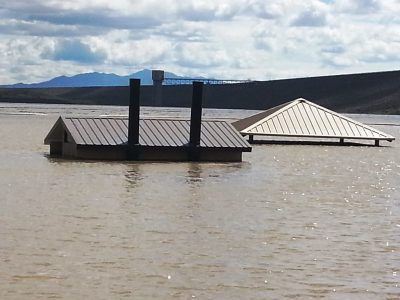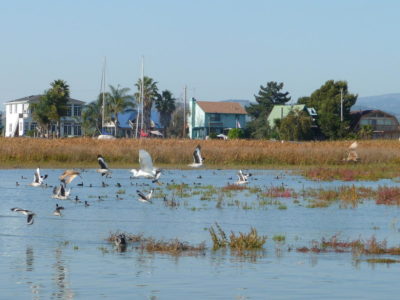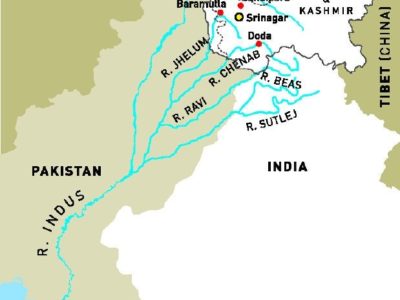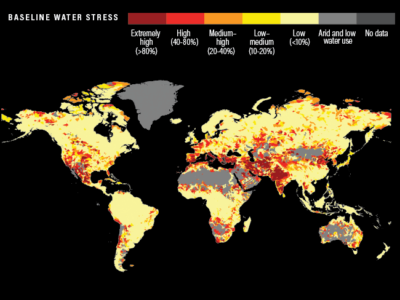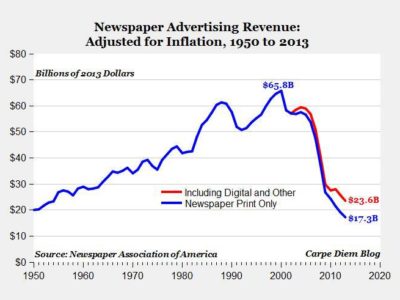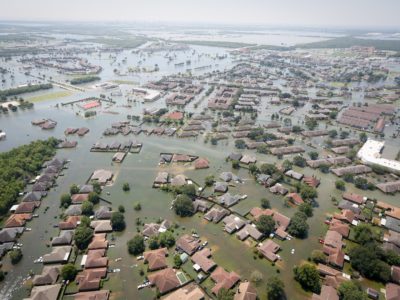Disasters
Charting the Progress of the Latest Chapter in American Climate Change Litigation
State and Local Governments’ Common Law-Based Lawsuits Against the Energy Industry Are Steadily Gaining Traction
The latest chapter in American climate change litigation has been launched by local governments–and one state–across the U.S. against domestic and international fossil fuel companies. These lawsuits have been brought under one of the oldest and most venerable legal doctrines–state common law. They seek compensation from the energy industry for the myriad, adverse effects of …
Continue reading “Charting the Progress of the Latest Chapter in American Climate Change Litigation”
CONTINUE READINGClimate Change and the Insurance Sector: An Overview
The Insurance Industry Grapples With Changing Risks in a Changing Climate
(This post is part of a series on the issue of climate change and insurance that my colleague Ted Lamm and I are writing, inspired by a symposium that the law schools co-organized with the California Department of Insurance earlier this year. You can find more information on the symposium here. Ted’s prior related post …
Continue reading “Climate Change and the Insurance Sector: An Overview”
CONTINUE READINGBuilding Climate Resilience through Insurance
New insurance products may offer innovative adaptation solutions
(This post is part of a series on the issue of climate change and insurance that my colleague Sean Hecht and I are writing, inspired by a symposium that the law schools co-organized with the California Department of Insurance earlier this year. You can find more information on the symposium here.) The autumn of 2019 is bringing …
Continue reading “Building Climate Resilience through Insurance”
CONTINUE READINGWeaponizing Water in Kashmir
India’s legal moves on water put Pakistan on edge
A month after India’s move to exert more direct control over Jammu & Kashmir, the Indian state that occupies part of the larger Kashmir region, the country is also now in a position to exert control – in both illegal and legal ways – over important river waters that Pakistan relies upon to sustain people …
Continue reading “Weaponizing Water in Kashmir”
CONTINUE READINGThe World’s Looming Water Crisis
Climate Change Worsens Chronic Water Shortages for One-Quarter of Earth’s Population
The World Resources Institute recently released a disturbing report chronicling increased, dire water shortages around the globe that threaten millions of the earth’s inhabitants. Climate change is a major contributing factor. Public health crises, social unrest and global political conflicts are the inevitable consequences if the problem is not addressed successfully–and soon. “17 Countries, Home …
Continue reading “The World’s Looming Water Crisis”
CONTINUE READINGIs the Amazon Burning?
The current panic may not be justified, although long-term worries are
The environmental community is presently up in arms about fires in Brazil’s Amazon. The number of fires have dramatically increased over this time last year. A Greenpeace worker said, “This is not just a forest that is burning. This is almost a cemetery. Because all you can see is death.” France’s president Emmanuel Macron tweeted, …
Continue reading “Is the Amazon Burning?”
CONTINUE READINGGoodbye, Cleveland!
Newspaper Collapse Threatens The Environment: Universities Need To Fill The Gap
In 1970, Cleveland’s Cuyahoga River famously caught fire. This past week, we have seen an even worse environmental disaster for the city: The Plain Dealer on Monday laid off 14 newsroom employees as part of a staff reduction first announced in December. The 14, most of them reporters and all members of Local 1 of …
Continue reading “Goodbye, Cleveland!”
CONTINUE READINGCoastal Communities Demand EPA Update Decades-Old Oil Spill Regulations
Written in Collaboration with Camila Gonzalez*
Coastal communities are bracing themselves. Thirty years after the Exxon Valdez oil spill in Alaska, and almost nine years after the BP Deepwater Horizon rig explosion in the Gulf of Mexico, they are facing the threat of another catastrophic oil spill. The Trump Administration is paving the way. The Bureau of Ocean Energy Management will …
Continue reading “Coastal Communities Demand EPA Update Decades-Old Oil Spill Regulations”
CONTINUE READINGNational Security, Climate Change, and Emergency Declarations
If the Supreme Court upholds Trump, it will have to uphold an emergency declaration for climate change.
Trump finally pulled the trigger today and declared a national emergency so he can build his wall. But if illegal border crossings are a national emergency, then there’s a strong case for viewing climate change in similar terms. That point has been made by observers ranging from Marco Rubio to Legal Planet’s own Jonathan Zasloff …
Continue reading “National Security, Climate Change, and Emergency Declarations”
CONTINUE READINGI’ll Just Be Over Here In My Fallout Shelter
The Green New Deal may be ambitious, but it’s not alarmist.
It would be impossible to react to every piece of misinformation or poor reporting about climate change—let alone every misguided opinion editorial—that lives online today, but Bret Stephens’ February 15 piece in the New York Times strikes me as warranting a response. That’s not because of the clickbait title (“Is Nancy Pelosi A Climate Skeptic?” …
Continue reading “I’ll Just Be Over Here In My Fallout Shelter”
CONTINUE READING



